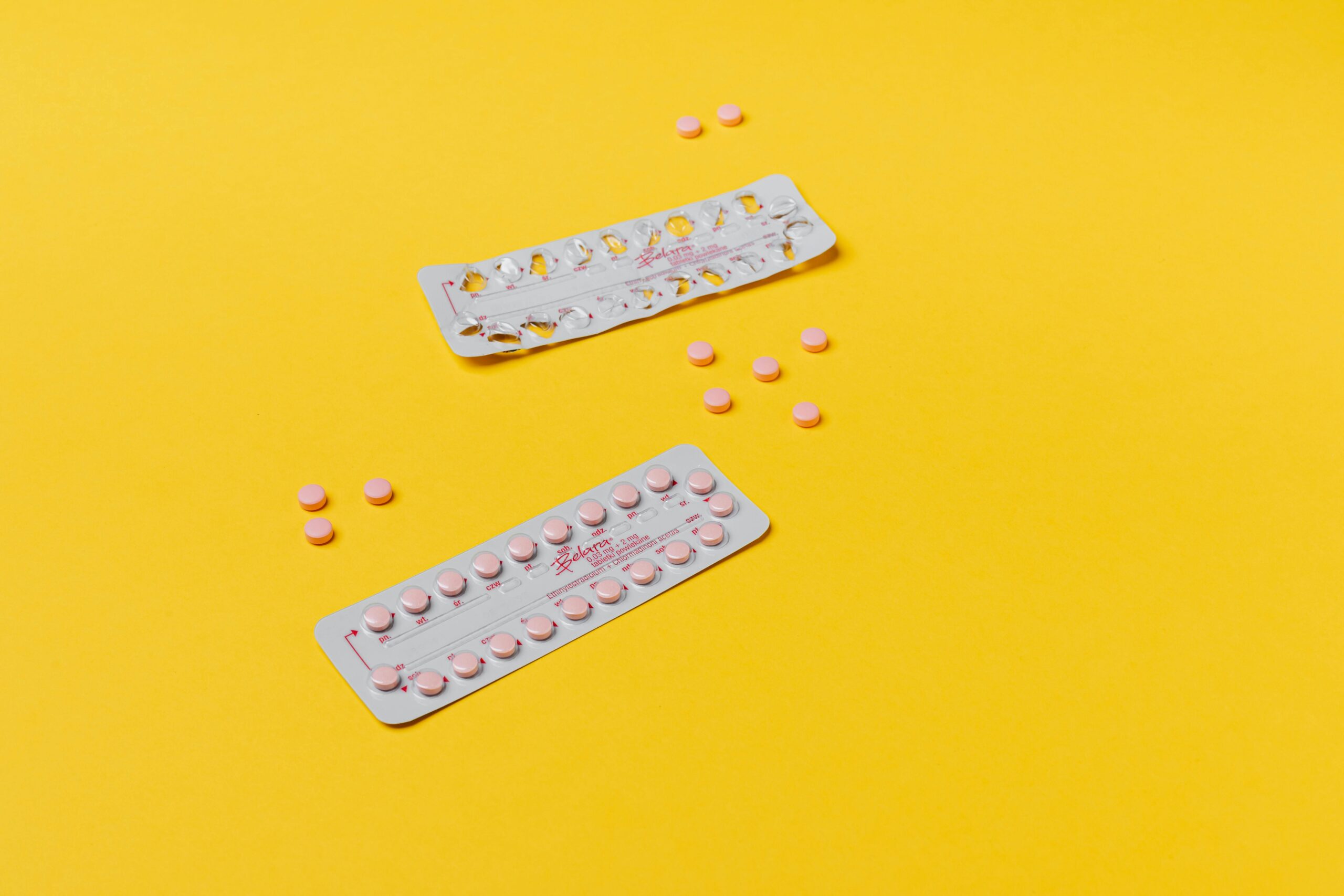
What are the best contraception options for PCOS?
In this article
What's the lowdown?
PCOS can cause irregular or even no periods, which over many years can increase the risk of womb cancer
Contraception is important to keep the womb lining thin or to help cause regular bleeds
Contraception can also help with other symptoms of PCOS including acne and hair growth
PCOS is a fairly common condition affecting women of reproductive age. Whilst PCOS cannot be cured, symptoms such as acne and irregular periods can often be managed with contraception. But which birth control is best for PCOS?
What is PCOS (Polycystic Ovary Syndrome)?
Polycystic Ovary Syndrome, also known as PCOS, is a condition that affects how a woman’s ovaries work. Its exact cause is unknown but it is thought to be related to an imbalance of hormones which means that an egg may not develop as it should. This can impact on ovulation and can cause irregular periods.
What are PCOS symptoms?
PCOS can come with a variety of symptoms which may vary from person to person. Not all women with PCOS will have all of the symptoms, and each symptom can vary from mild to severe.
- Irregular periods including missed periods and no periods
- Increased body hair usually around the stomach, chest, face or back (called hirsutism)
- Acne or oily skin
- Difficulty getting pregnant as a result of irregular ovulation or not ovulating
- Hair loss – women may experience thinning of the hair on their head
- Weight gain
You can anonymously share your own personal PCOS experience with The Lowdown and read other’s in this space.
You should talk to your GP or one of our amazing doctors at The Lowdown, if you have any of these symptoms and think you may have PCOS. Whilst PCOS cannot be cured, the symptoms of PCOS can be managed. Your GP will be able to recommend the best treatment options depending on your symptoms.
Best contraception for PCOS
The best form of contraception for PCOS is one which protects your womb lining, helps to manage your PCOS symptoms and is safe for you to take. Regular periods are important, as if you don’t bleed every 3 months, your womb lining can start to overgrow which increases the risk of endometrial cancer. Hormonal contraception can reduce this risk of endometrial cancer by making sure you have regular bleeds, and by preventing the womb lining from overgrowing.
- The combined pill – the oestrogen can help balance the high levels of androgens in your bloodstream with PCOS. Plus the progestogen in the combined pill can help do this too depending on the brand.
- The hormonal coil (IUS) helps protect the womb lining and manage heavy periods. It’s also a low dose of hormones.
What’s the best contraceptive pill for PCOS?
The combined pill may be recommended as a form of contraception if you have PCOS and is a way to induce more regular periods.
The combined pill may also be recommended as a way to manage PCOS symptoms such as acne, hair loss and hirsutism.
The progestogen-only pill can be used as contraception if you are unable to safely use the combined pill and also protects the womb lining. The brand Slynd contains an anti-androgenic progestogen which may help PCOS symptoms, but many women find that othe progestogen-only pill brands can also help. For example, this user of Cerazette:
“I’ve always had heavy, miserable periods and along with PCOS this left me incapacitated for at least a couple of days a month; even ovulation was agony. This pill was almost a miracle solution for me. My periods stopped altogether and although that was a strange change after twenty plus years of hormonal rhythms, it soon became a blessed relief.”
Is the patch or vaginal ring good for PCOS?
Similar to the combined pill, the vaginal ring and contraceptive patch are methods which also contain oestrogen and progestogen. This means that although compared to the combined pill they may look different and how you use them is different, these three methods all act in the same way and have the same benefits for women with PCOS.
Mirena coil for PCOS
The Mirena coil and other hormonal coil brands may also be recommended as a method of contraception for someone with PCOS as it keeps the womb lining thin, reducing the risk of endometrial cancer. It might not give you regular periods, but it can make them lighter, or stop them completely.
Can your contraception make you gain weight if you have PCOS?
With PCOS there are some contraceptives that are more widely recognised as making users gain weight. Whilst the mini pill may also be an option for some women with PCOS, some of our mini pill reviews had personal experiences with the progesterone only pill that caused them to put on weight. Weight gain is a possible side effect for a minority of women of the contraceptive injection such as Sayana Press, so this form of contraception is not recommended if this is an issue. If you have a BMI over 35 then the combined pill is not safe for you, so please seek your doctor’s advice.
Best contraceptives for managing PCOS symptoms
The combined pill is usually prescribed as the best birth control for PCOS acne sufferers. Containing both oestrogen and progestogen, the combined pill can help oily skin and acne.
If you are struggling with hair loss or excessive hair growth (hirsutism) due to excessive androgens related to PCOS, your GP may also recommend the combined pill as a form of treatment. Brands such as Yasmin, Lucette or Eloine contain an anti-androgenic progestogen called drospirenone which can be brilliant at reducing androgens in your body. If you can’t use the combined pill then Slynd is a progestogen-only pill that contains just drospirenone that may also be useful.
It will vary from person-to-person as to which contraception is best for PCOS, so ensure you seek advice from a medical professional before choosing your method.
Our medical review process
This article has been medically reviewed for factual and up to date information by a Lowdown doctor.







